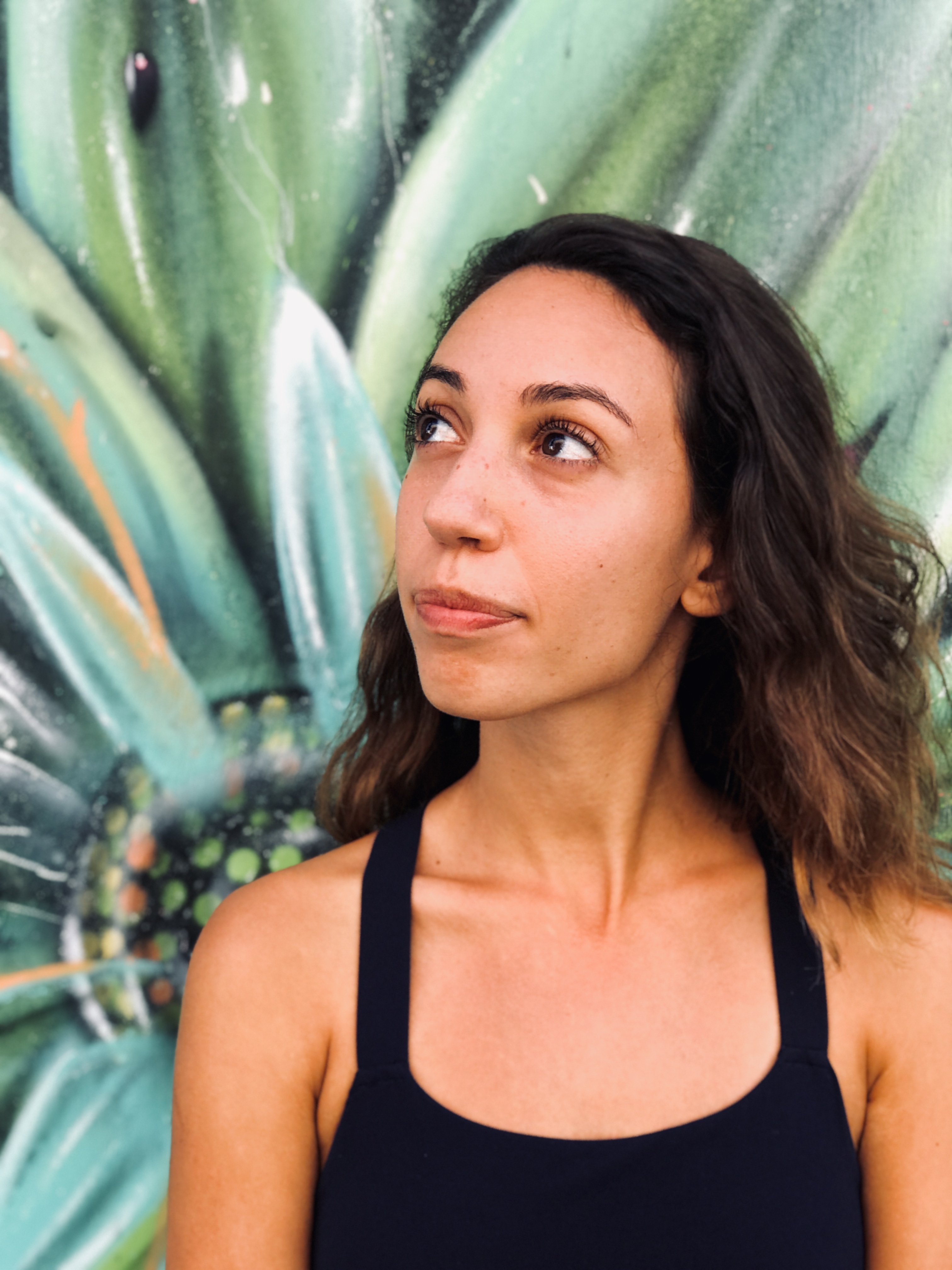Welcome to our special section, Thrive on Campus, devoted to covering the urgent issue of mental health among college and university students from all angles. If you are a college student, we invite you to apply to be an Editor-at-Large, or to simply contribute (please tag your pieces ThriveOnCampus). We welcome faculty, clinicians, and graduates to contribute as well. Read more here.
The word “fun” is hardly, if ever, associated with the college application process. For many of us, applying to college is an unfamiliar process that elicits feelings of anxiety, inadequacy, and fear… it’s not exactly the peak moment for our mental well-being. One of the biggest causes of these feelings is accessibility of resources; students often lack resources that could help them gain a better understanding of the application process, without forcing their families to empty out bank accounts.
Here at Oxford University, one woman in particular has revolutionised accessibility to break down the, quite literally, high walls that surround Oxford and its admissions process. Her name: Tilly Rose, aka That Oxford Girl.
While many of her colleagues and friends went on to more corporate careers upon graduating from Oxford, Tilly ventured down a different, more inspired and independent, path. Pursuing passions for accessibility in higher education and creative writing, Tilly created an Instagram account and small blog entitled That Oxford Girl to share her personal takes on the application process and student life in the hope that her experiences might help others navigate the complex systems of university admission, specifically at Oxford.
In just a few years, That Oxford Girl has become an invaluable (and free!) resource on all matters Oxford for both prospective and current students alike. The blog has over 400,000 views and the Instagram account has over 30,000 followers.
I was fortunate to meet Tilly in person to learn more of the That Oxford Girl brand, the recent book Tilly wrote based on her blog, and Tilly’s life as a student, including her serious struggles with physical health throughout undergrad. Her work and personal journey are inspiring resources just for students at Oxford but all over the world; they are reminders that authenticity and tenacity go a long way to helping us achieve our dreams.
Before we begin, could you share what your experience as a student was like here?
My journey was not the standard journey to Oxford.
Oxford was a massive balancing act because my whole time that I was here I was regularly in and out of hospitals for various cases of pneumonia. In my second year, my condition worsened drastically: the antibiotics were no longer working, the doctors couldn’t seem to find any cure, and the university told me that I needed to take a year off to focus on getting better. I had been to over 30 consultants and 15 hospitals, but nothing was working. The following year, there was a huge breakthrough: I had been living with undiagnosed active tuberculosis for 13 years. After several failed treatments, in my third year of University I began a life-saving chemotherapy treatment.
Thank you for sharing that. It can be difficult to address academics and student life when you have to remember the bigger picture and personal health above all, so this is a nice reminder to students everywhere to first and foremost to “preserve their flame,” as we say here at Thrive. Let’s talk more about That Oxford Girl. How did the idea initially come to life?
When I graduated, I was still in chemotherapy treatment and was not in a position to work. I couldn’t work full-time, so I asked myself: What am I passionate about? Writing, and Oxford University. To merge them together I wanted to create a resource that could give a free insight into student life and help others navigate the difficulties I had experienced first-hand in the complex application process. That’s how That Oxford Girl was born.
How has the project evolved since it began?
To start with, it was just me writing the posts about my experiences with the application process and student life. Once it really took off, I became well aware that in order for it to stay current it had to reflect more of a diverse student body–that sparked the ambassador scheme.
Initially only sven people signed up. Now it has grown to over 70 ambassadors! We have a meeting every term at local coffeeshops and restaurants to discuss the posts. It’s a great chance for everyone to meet and get to know each other.
How do you maintain a healthy relationship with over 70 ambassadors?
As time progressed, I realised that the ambassadors saw the meetings as a way of meeting people and students from other colleges. It’s become a bit of a network, where people can voice if they’re struggling with something, and it often turns out that their struggles are shared. The meetings are really safe spaces and open forums. Building that sense of community is how I keep them all together and help them become a team.
How would you compare That Oxford Girl to other access groups in the U.K.?
There are many different and wonderful access organizations in the U.K. One of the things I have seen them struggle with though is getting young people to be as engaged with them. That Oxford Girl collaborates with local brands to make access cool, and these partnerships are also beneficial for the growth of local businesses in the city. The platform is heavily based on social media, where students write and share their stories; it’s transforming something that may be seen as a bit dry, and making it really engaging.
The social media pages, book, and blog, each, in a way, hold the hands of prospective and current students, taking them through the various stages of the admissions process in small, meaningful chunks. In this manner, the process isn’t overwhelming or intimidating–and the language is fun, lighthearted, and relatable.
The term “fun” often comes up when you talk about That Oxford Girl. Would you say it is an important part of That Oxford Girl’s accessibility strategy?
Yes, and I really feel that that’s why That Oxford Girl has been so successful. The language that we use isn’t a formal and official voice. I usually say something like yeah, you’ll arrive, it will be absolutely terrifying, and you’ll probably cry in your room for an hour after your first class. But it gets better, and there is much more to the university outside of academics.
Is “fun” a fundamental part of well-being? When did it become part of yours?
It is a massive part of well-being. My first term at Oxford was really overwhelming in terms of the workload. I had imposter syndrome and put so much pressure on every essay that I handed in that I spent hours reading and panicking about it. If we had been given 40 books on a reading list, I’d read every single one of them. But by the end of term, I probably only remembered one book–I realised that it wasn’t an effective pressure. I think also seeing that other students were managing to take time out and do things outside of their studies probably pushed me to make more time for fun.
What insights has That Oxford Girl given you on the current challenges of students’ well-being?
There are whole areas of the university and support networks that when I was here as a student I didn’t even know existed. So, the main problem and what That Oxford Girl is trying to overcome, is directing people to those networks. We show students all the different support systems in place such as welfare teams, nurses, the counselors, disability advisory services. Together with the personal stories from our ambassadors, we don’t just familiarise students with these resources but also help them see that they are approachable.
Why did you decide to write a book, and how did you know that you needed to write a book?
When I was applying, I looked online trying to find a book about the process of applying to Oxford and there was absolutely nothing out there. Then when I visited the city, and went around to the various bookshops, I noticed that there were all of these very dry and very linear black-and-white books on Oxford, but there was nothing providing that perspective of life behind the walls.
I wanted to provide an affordable, colourful, and refreshing resource that could help break this barrier to show what’s going on behind the walls. It is a book truly made with young people in mind.

What were some of the challenges you faced in writing your first book?
To try and maintain the fun lighthearted tone whilst also trying to be factually accurate about a university that’s made up of 38 colleges all who do things completely differently… Trying to make it engaging while informative was a really hard balance to strike.
Writing about myself was also difficult. It was only last summer that I actually opened up on the platform about my illness. I didn’t want anyone feeling sorry for me. But then I realized that I was asking my ambassadors to be open about their stories, yet I hadn’t actually told anyone mine.
To learn more about Tilly and her work, make sure to follow and check her out on social media here: Instagram, Blog, Facebook.
… and don’t forget to buy your own copy of That Oxford Girl!
Key Takeaways
- Following the seemingly ‘traditional’ professional routes immediately upon graduating is not necessarily the best, or only, path forward; if you can, take some time to assess your passions and see if you can carve your own path!
- Simply having ‘fun’ is a powerful way to increase your well-being as a student.
- There is much more to your university experience than academics; it is important for your well-being to make time for activities outside of work, and it can actually increase your productivity!
- Availability of access resources and support groups for students are not always advertised, and it is necessary to ensure that the networks in place are made known to students.
Subscribe here for all the latest news on how you can keep Thriving.
More on Mental Health on Campus:
What Campus Mental Health Centers Are Doing to Keep Up With Student Need
If You’re a Student Who’s Struggling With Mental Health, These 7 Tips Will Help
The Hidden Stress of RAs in the Student Mental Health Crisis


